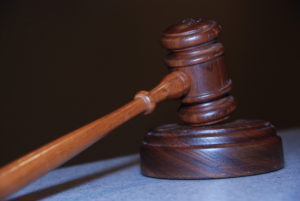
A deposition is a discovery tool used by attorneys to compel witnesses and opposing parties to answer questions under oath. Generally, they should be used for three purposes: to gather information, to gain admissions and to test out theories of the case. As a former prosecutor and a business litigator, I have had the opportunity to witness attorneys who were very skilled at taking depositions, but most were not. When an attorney takes a great deposition, the case and facts become more clear and, as a result, a favorable and faster outcome is likely to occur. In the best circumstances, the deposition of a party opponent or a key witness is often where the opposing party sees their case fall apart. This occurs if an attorney’s deposition reveals useful information, gains admissions and successfully undermines (or bolsters) a witness’ credibility as well as the attorney’s theory of the case.

I recently had a business contracts case where we represented a business seeking recourse for the breach of a business contract. The defendant’s main defense was that it was a third party who signed the contract, not the defendant. Throughout the course of the deposition, I gained a number of admissions from the defendant which (a) undermined the factual credibility of her defenses; and, (b) gained testimony which supported one of our alternate theories of the case – that the third party had her authority to execute the document on her behalf and that it was reasonable for my client to rely upon this apparent authority; and, (c) gained information about the existence of other documents which supported my client’s positions. The case settled at the deposition table for full damages plus my client’s attorney’s fees, due to the fact that the opposing party realized in the deposition that we were very likely to win at trial.
The groundwork for making a deposition successful is laid long before the day of the deposition. Here are some deposition preparation practices which have helped me have success on the day of the deposition:
- Using timing and ordering of depositions to my client’s advantage. This approach considers the documents or other discovery that might be needed or obtained before the deposition, loss of memory due to passage of time, witness availability, both sides’ financial resources, and other relevant factors.
- Knowing the facts cold beforehand. Talking to my client, reviewing and understanding related documents, doing an informal investigation, doing written discovery to get everything needed are essential to learning as much as possible about the case before the deposition. This exercise also includes reviewing filed pleadings to thoroughly attack each allegation, denial, claim or defense as well as discovery requests previously made to confirm existence or non-existence of documents.
- In certain circumstances, having my client or expert attend the deposition to take notes and talk to me at breaks and give me additional information or questions or issues to follow-up on. Often times surprising additional facts are revealed at the deposition and my client’s input before the end of the deposition is invaluable.
- Developing multiple theories and themes of the case and doing the necessary legal research before the deposition to know what facts are needed to support each theory.
- Outlining deposition themes and issues, but avoiding writing canned questions. In my experience, canned questions make it difficult to listen well and ask follow-up questions. I also usually send my outline to my client before the deposition and have them review it for additional insights.
In almost all business litigation cases, there is only one chance to take the deposition of a party or witness and cement the facts necessary to secure a favorable outcome. If you have a business-related dispute and would like a free consultation, feel free to contact us using the information on our website. We litigate issues related to breach of business contracts, fraud, internal company disputes, defamation, breach of fiduciary duty and other business issues.

